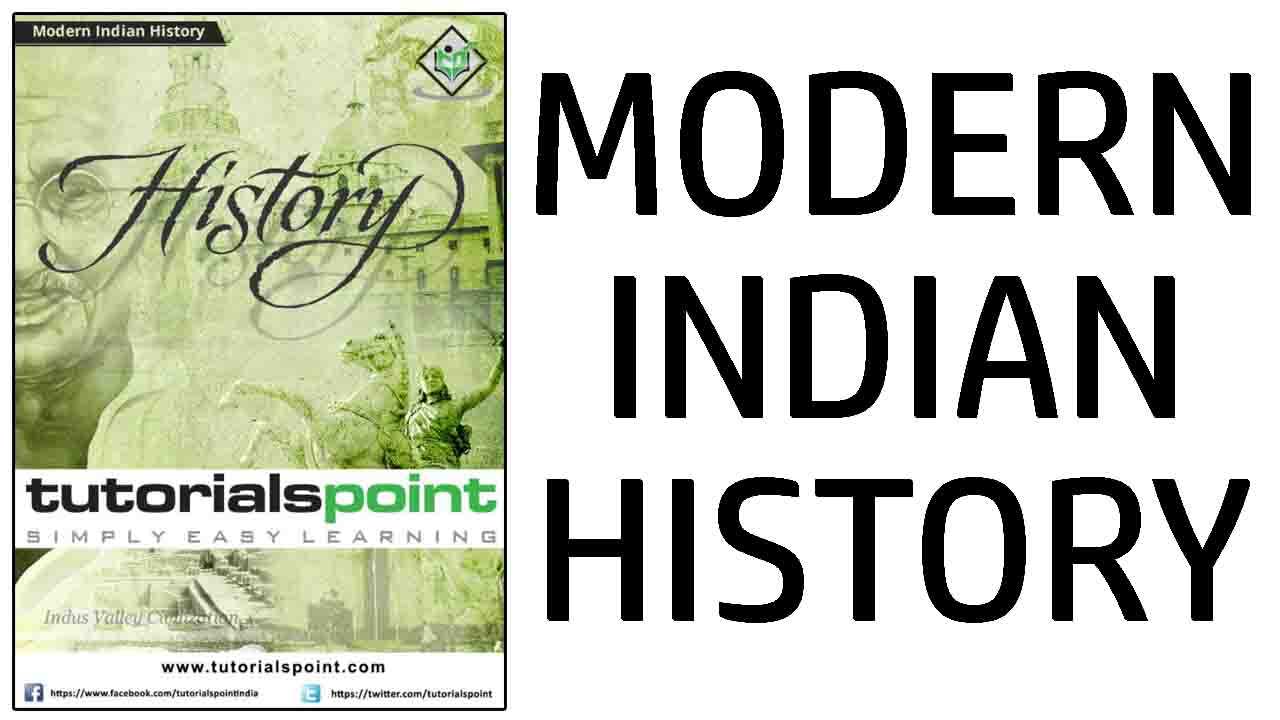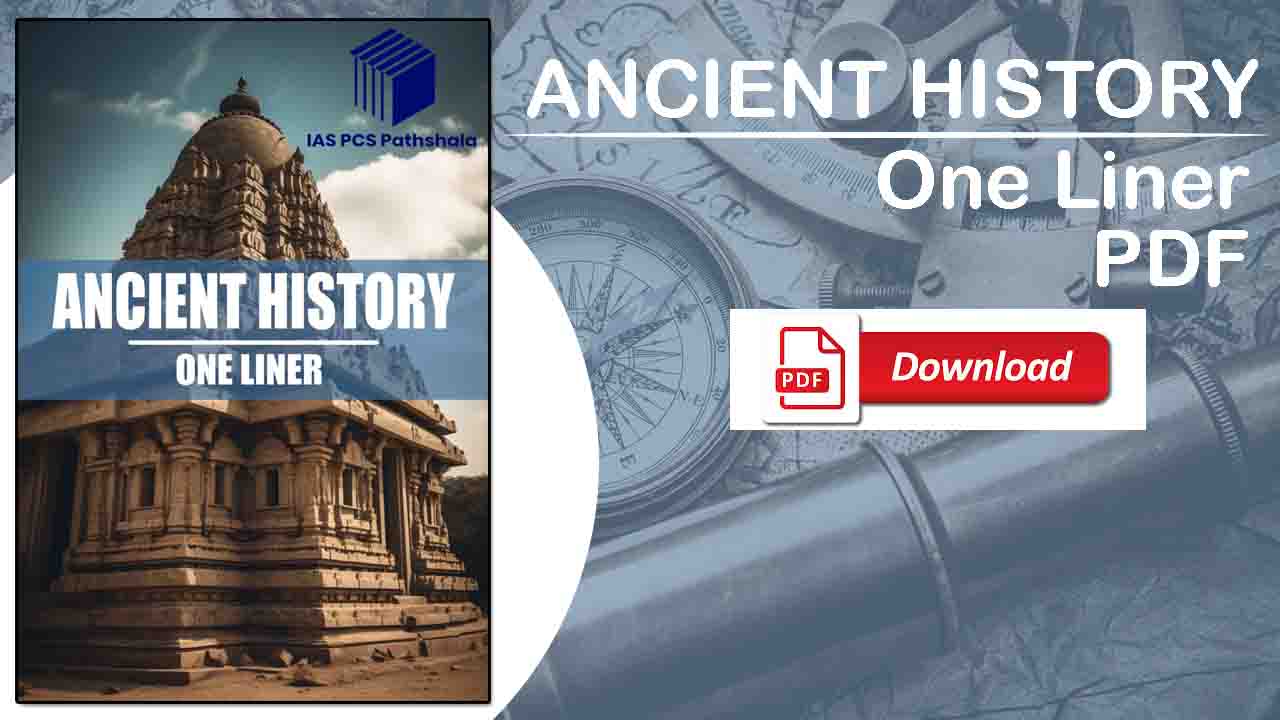Modern Indian History- Hello Friends, in today’s article we have brought for you a very useful eBook related to Modern Indian History, in which you get Topic Wise Important Points, so that you can read and understand Modern Indian History in a better way.

Modern Indian History
Modern Indian History is a crucial segment for all competitive exams, especially for UPSC, SSC, State PCS, and various other government recruitment tests. Understanding the colonial rule, the freedom struggle, and the post-independence challenges helps candidates grasp the evolution of modern India. This tutorial aims to simplify key points and make learning effective for exam preparation.
Timeline Overview (1757 – 1947)
Here’s a quick timeline for Modern Indian History:
- 1757: Battle of Plassey – Beginning of British political rule in India
- 1773: Regulating Act – First step towards central administration
- 1857: First War of Independence (Sepoy Mutiny)
- 1885: Formation of Indian National Congress
- 1905: Partition of Bengal – Rise of Swadeshi and Boycott movements
- 1915: Return of Mahatma Gandhi from South Africa
- 1919: Jallianwala Bagh Massacre & Rowlatt Act
- 1920-22: Non-Cooperation Movement
- 1930: Civil Disobedience Movement
- 1942: Quit India Movement
- 1947: Indian Independence
Key Phases and Topics
1. British Conquest and Rule
- East India Company & Expansion: Dual administration, Subsidiary Alliance, Doctrine of Lapse
- Economic Impact: Drain of wealth, Deindustrialization, Zamindari system
- Reforms: Charter Acts, Government of India Acts (1858, 1919, 1935)
2. Socio-Religious Reform Movements
- Brahmo Samaj (Raja Ram Mohan Roy)
- Arya Samaj (Swami Dayanand Saraswati)
- Aligarh Movement (Sir Syed Ahmad Khan)
- Prarthana Samaj & Ramakrishna Mission
3. Uprisings and Revolts
- Tribal and Peasant Movements: Santhal Rebellion, Indigo Revolt, Deccan Riots
- 1857 Revolt: Causes, Leaders, Consequences
4. Nationalism and Indian National Congress
- Moderate Phase (1885-1905): Early nationalist demands
- Extremist Phase (1905-1919): Bal Gangadhar Tilak, Bipin Chandra Pal, Lala Lajpat Rai
- Gandhian Era (1915-1947): Gandhi’s leadership and mass movements
5. Important Movements
- Swadeshi and Boycott (1905)
- Non-Cooperation Movement (1920)
- Civil Disobedience Movement (1930)
- Quit India Movement (1942)
6. Revolutionary Movements
- Bhagat Singh, Chandrashekhar Azad, Surya Sen
- Ghadar Movement
- Hindustan Socialist Republican Association (HSRA)
7. Constitutional Developments
- Indian Councils Act (1861, 1892)
- Government of India Act (1919 – Montagu-Chelmsford Reforms)
- Government of India Act (1935)
- Cabinet Mission Plan (1946)
8. Partition and Independence
- Mountbatten Plan (1947)
- Indian Independence Act (1947)
- Partition of India – Causes & Impact
Quick Revision Points
| Topic | Key Facts |
|---|---|
| First Governor-General | Warren Hastings |
| First Viceroy of India | Lord Canning |
| Formation of INC | 1885 by A.O. Hume |
| First Session of INC | Bombay, 1885 |
| Gandhi’s First Movement | Champaran Satyagraha, 1917 |
| Revolutionary Organisation | HSRA |
| Simon Commission Arrival | 1928 |
| Lahore Session of INC | 1929 – Purna Swaraj Resolution |
| Last British Viceroy | Lord Mountbatten |
| Date of Independence | 15th August 1947 |
Pro Tips for Exams
- Make timelines: Easy for memorization.
- Focus on Acts, Movements & Leaders: These are frequently asked.
- Use Flowcharts: To link events and causes.
- Practice Previous Year Questions: To identify key focus areas.
- Revision through Quizzes: Helps retain dates and facts.
How to Download Modern Indian History Tutorial Points PDF
To download this PDF file, click on the given PDF Download button so that you can download this magazine very easily.
Current Affairs Magazine | |
| Book Name: | Modern Indian History |
| Size: | 8.68 MB |
| Total Number of Pages: | 291 Quality Pages |
| Format: | PDF file |
| Quality | Excellent |
| Language: | English |
| Writer/Owner | Tutorial Points Publication |
Note- If you face any problem in downloading any magazine available on our website, then please tell us by commenting.
Conclusion
Modern Indian History is not just about memorizing dates but understanding the larger socio-economic and political changes. With proper strategies, regular revision, and practice, this section can fetch high marks in competitive exams. This tutorial provides a structured approach to mastering Modern Indian History in a short time.
You May Also Read
- UPSC Prelims PYQ- Polity Topic Wise Question PDF
- Science and Technology Prelims 2025 Booster by IAShub PDF
- Yojana Monthly Current Affairs Magazine January 2025 PDF
- Air Force School Bamrauli Recruitment 2025 Form PDF
- PW Only IAS Complete Physical Geography Notes PDF
- VISION IAS PT 365 Culture Prelims 2025 in Hindi PDF








